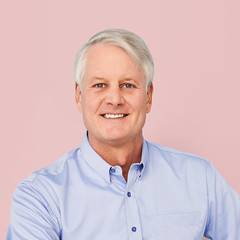A Quote by John Donahoe
Great leaders are never too proud to learn.
Quote Topics
Related Quotes
If we want leaders to make good decisions amid huge complexity, and learn how to build great teams, then we should send them to learn from people who've proved they can do it. Instead of long summer holidays, embed aspirant leaders with Larry Page or James Dyson so they can experience successful leadership.
Authenticity is about imperfection. And authenticity is a very human quality. To be authentic is to be at peace with your imperfections. The great leaders are not the strongest, they are the ones who are honest about their weaknesses. The great leaders are not the smartest; they are the ones who admit how much they don't know. The great leaders can't do everything; they are the ones who look to others to help them. Great leaders don't see themselves as great; they see themselves as human.
It has become a commonplace that aggressiveness also often has its roots in fear. I am inclined to think that this theory has been pushed too far. [...] The type of aggressiveness that is the outcome of timidity is not, I think, that which inspires great leaders; the great leaders, I should say, have an exceptional self-confidence which is not only on the surface, but penetrates deep into the subconscious.
Why do leaders fail? Isolation and inability to learn. They are afraid to express doubt, admit vulnerability or seek advice from subordinates. Leaders must actively work to seek feedback and a reality check. They must be open to asking questions and framing issues. As the world becomes more complex and global, the risk of isolation becomes greater. The need for leaders to be open to learning becomes greater. Great leaders will need to ask the right questions and balance inquiry with advocacy.
Micromanaging erodes people's confidence, making them overly dependennt on their leaders. Well-meaning leaders inadvertently sabotage their teams by rushing to the rescue and offering too much help. A leader needs to balance assistance with wu wei, backing off long enough to let people learn from their mistakes and develop competence.
There is a difficulty with only one person changing. People call that person a great saint or a great mystic or a great leader, and they say, 'Well, he's different from me - I could never do it.' What's wrong with most people is that they have this block - they feel they could never make a difference, and therefore, they never face the possibility, because it is too disturbing, too frightening.
Be proud of your mistakes. Well, proud may not be exactly the right word, but respect them, treasure them, be kind to them, learn from them. And, more than that, and more important than that, make them. Make mistakes. Make great mistakes, make wonderful mistakes, make glorious mistakes. Better to make a hundred mistakes than to stare at a blank piece of paper too scared to do anything wrong.
































